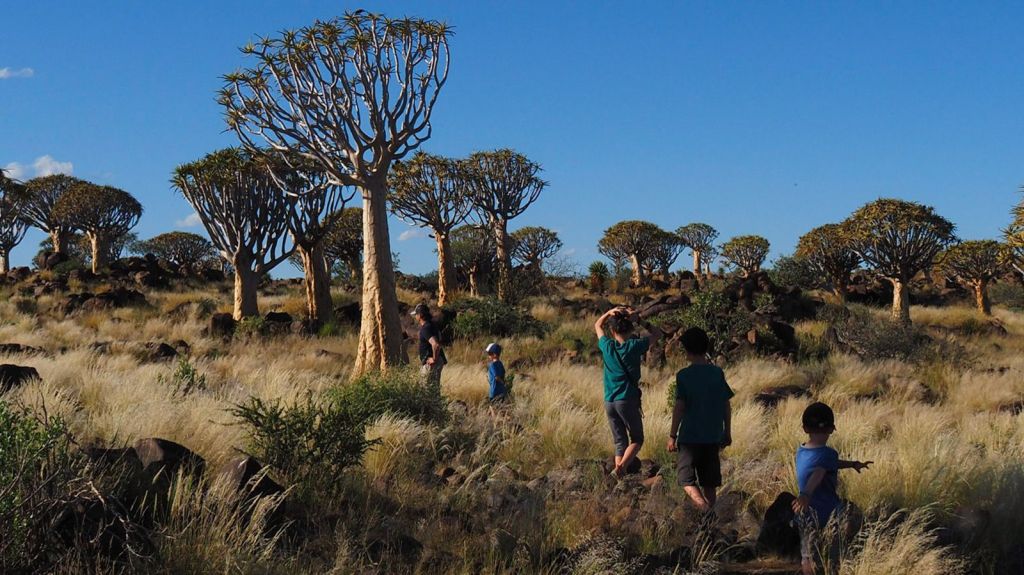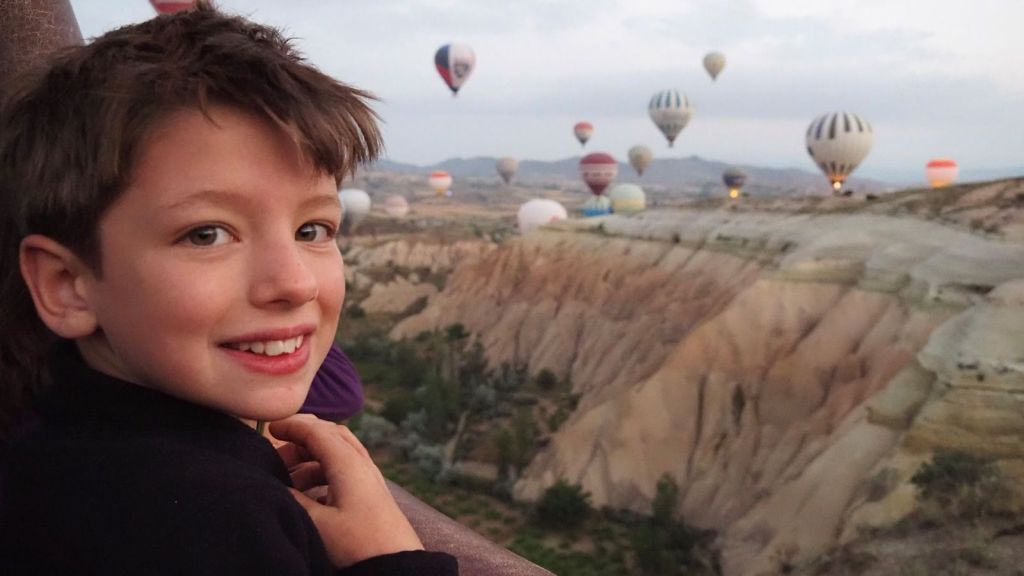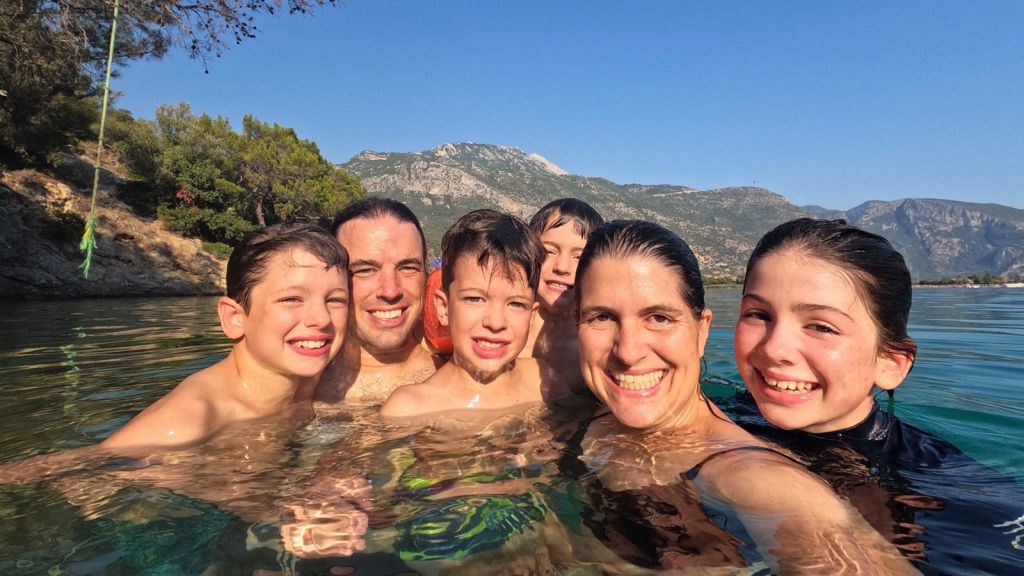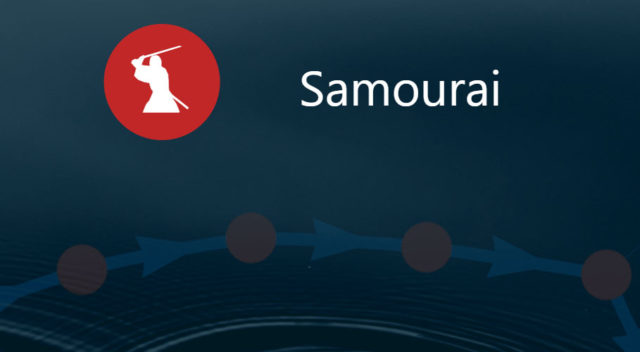Their daughter, Mia, was just three years old when the Canadian couple Edith Lemay and Sebastien Pelletier noticed for the first time that she had vision problems.
A few years after taking her to a specialist, Mia, the eldest of their four children, was diagnosed with retinitis pigmentosa a rare genetic condition that causes vision loss or decline over time.
By this time, Lemay and Pelletier, who have been married for 12 years, noticed that two of their children, Colin now seven years old, and Laurent now five, had the same symptoms.
Her fears were confirmed when, in 2019, the boys were diagnosed with the same genetic disorder; her other son Leo, now nine, does not suffer from the disease.
“There is nothing you can really do,” says Lemay, explaining that there is currently no cure or effective treatment to slow the progression of retinitis pigmentosa.
“We don’t know how quickly this will happen, but we expect them to go completely blind by middle age.”
visual memories
Once they came to terms with the news, the couple focused their attention on helping their children develop the skills they need to navigate life.
When Mia’s specialist suggested they absorb her with “visual memories,” Lemay realized there was a truly amazing way to do just that for her and the rest of the kids.
“I thought, ‘I’m not going to show her an elephant in a book, I’m going to take her to see a real elephant,’” she explains. “And I will fill her visual memory with the best and most beautiful images I can.”
She and her husband soon began making plans to spend a year traveling the world with their children.
Although Lemay and Pelletier often traveled together before becoming parents and were used to traveling with children, taking a long family trip didn’t seem feasible until then.
“With the diagnosis, we have an urgency”, adds Pelletier, who works in the financial area. “There are great things to do at home, but there’s nothing better than traveling.
“Not only the landscape, but also the different cultures and people.”
They soon began trying to accumulate their savings, and the trip received a welcome boost when the company Pelletier worked for and owned was purchased.
“It was like a small gift from life,” admits Lemay, who works in health logistics. “Like, here’s the money for your trip.”
The family of six was originally due to depart in July 2020 and had planned a detailed itinerary that involved traveling through Russia overland and spending time in China.
Big Adventure

However, they were forced to postpone their trip for several years due to travel restrictions brought on by the global pandemic and revised their itinerary numerous times. When they finally left Montreal in March 2022, they had few plans.
“We actually left without an itinerary,” says Lemay. “We had ideas of where we wanted to go, but we planned as we travelled. Maybe always a month ahead.”
Before leaving, the Lemay-Pelletier family created a sort of experiment list. According to Lemay, Mia wanted to ride a horse, while Laurent wanted to drink juice on a camel.
“It was really specific and really funny at the time,” she adds.
They started their journey through Namibia, where they got close to elephants, zebras and giraffes, before heading to Zambia and then Tanzania, and then flying to Turkey, where they spent a month. The family then proceeded to Mongolia, before arriving in Indonesia.
“We’re focusing on tourist spots,” explains Pelletier. “We are also focusing a lot on fauna and flora. We saw amazing animals in Africa, but also in Turkey and elsewhere.
“So we’re really trying to get them to see things they wouldn’t have seen at home and have the most amazing experiences.”
In addition to witnessing beautiful scenery while their eyesight is still relatively strong, the couple hopes the trip will help the children develop strong coping skills.
According to the National Eye Institute, part of the U.S. National Institutes of Health, an agency of the U.S. Department of Health and Human Services, symptoms of retinitis pigmentosa usually start in childhood and most people eventually lose most of their vision. .
“They will need to be really resilient throughout their lives,” adds Lemay, noting that Mia, Colin and Laurent will have to constantly readjust as their eyesight worsens.
support system

“Travel is something you can learn. It’s cool and fun, but it can also be very difficult. You may feel uncomfortable. You might be tired. There is frustration. So there’s a lot you can learn from a trip itself.”
While Mia, now 12, has known about her condition since the age of seven, Colin and Laurent have found out more recently and are starting to ask tough questions.
“My son asked me, ‘Mommy, what does it mean to be blind? Am I going to drive a car?” says Lemay. “He’s five years old. But slowly, he’s understanding what’s going on. It was a normal conversation for him. But for me, it was heartbreaking.”
For Leo, her second oldest child, knowledge of her siblings’ genetic condition was “always a fact of life”.
Lemay and Pelletier hope that spending time in different countries and experiencing different cultures will show all children how fortunate they are, despite the challenges that may arise later in their lives as their eyesight deteriorates.
“No matter how difficult their lives are, I wanted to show them how lucky they are just to have running water at home and be able to go to school every day with colorful, beautiful books,” adds Lemay, who says all four Children adapted to life on the road relatively easily.
“They are super curious,” she says. “They adapt easily to new countries and new foods. I am very impressed with them.”
While visual experiences remain a priority, Lemay says the trip has become more about showing kids “something different” and providing unforgettable experiences.
“There are beautiful places all over the world, so it doesn’t matter where we go,” she explains.
The family has been chronicling their journey through social media, posting regular updates to their Facebook and Instagram accounts.
Lemay says other people who have been diagnosed with, or have loved ones with, retinitis pigmentosa have reached out to her to offer words of encouragement.
In fact, a teacher at a specialist school in Quebec for blind or visually impaired students is among her 11,000 followers on Facebook and often shares her adventures with her class.
“Every week, she opens the Facebook page and describes all the photos or reads what I’m writing,” says Lemay.
“And somehow they are part of the journey with us. Being able to share this with others is a very nice gift for which I am very grateful. It makes me very happy.”
future challenges

Lemay and Pelletier admit the diagnosis is always in the back of their minds, but they are focused on living in the moment and “putting their energy into positive things.”
“We never know when it might start or how fast it might go,” adds Pelletier. “So we really want to enjoy this family time and cater to each of our children so we can live this experience to the fullest.”
While the family plans to return home to Quebec next March, they say they are trying not to think too far ahead. In fact, the ability to live in the moment is one of the main things the family has learned in recent months.
“This trip has opened our eyes to so many other things, and we really want to enjoy what we have and the people around us,” says Pelletier.
“If this continues when we get back, even in our daily routines, it will be a very good achievement.”
While traveling as a family was a test – the couple are also homeschooling their children – Lemay and Pelletier say one of the highlights was witnessing the bond between the children strengthened.
“They are great together,” he adds. “Also, I think it helps solidify that bond between them. And I hope this continues in the future so they can support each other.”
Pelletier emphasizes that they remain hopeful that Mia, Colin and Laurent will never go blind. But for now, they’re doing everything they can to ensure they can handle whatever the future holds.
“We hope that science will find a solution,” says Pelletier. “We crossed our fingers on that. But we know it can happen, so we want to make sure our children are prepared to face these challenges.”
Source: CNN Brasil
Bruce Belcher is a seasoned author with over 5 years of experience in world news. He writes for online news websites and provides in-depth analysis on the world stock market. Bruce is known for his insightful perspectives and commitment to keeping the public informed.






